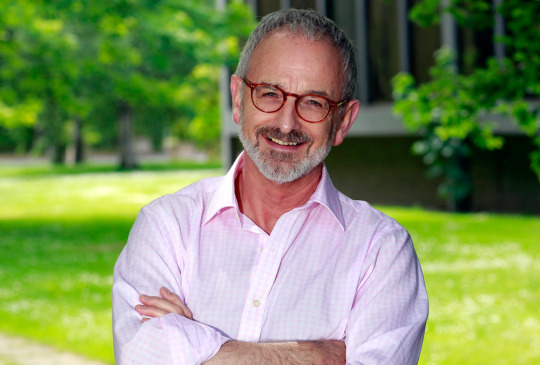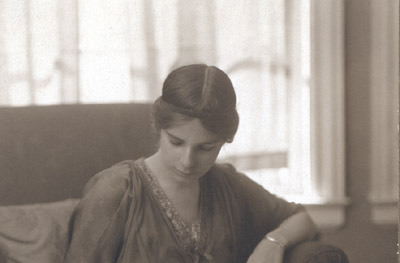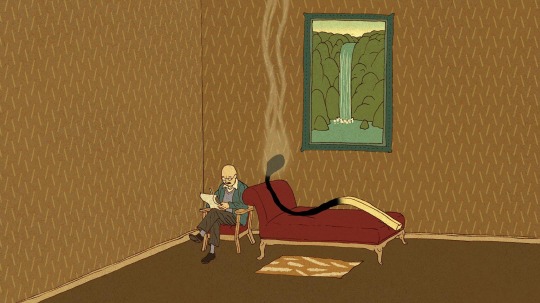#psychoanalyst
Text
“Everything that irritates us about others can lead us to an understanding of ourselves.”
― Carl Gustav Jung
#brownsugar4hersoul#carl gustav jung#carl jung#carl jung quotes#carl jung books#psychiartist#psychoanalysis#psychoanalyst#anthropology#swiss psychiatrist#deep quotes#deep thoughts#deep thinking#inspirational quotes#literary quotes#life quotes#life reminders#life lessons#life advice#word of advice#self reminder#self realization#self help#self reflection#note to self#♌️#leo#leo season#male leo#genius
217 notes
·
View notes
Photo

Michael Murphy
Gender: Male
Sexuality: Gay
DOB: Born 1947
Ethnicity: White - Irish
Occupation: Journalist, writer, presenter, psychoanalyst
#Michael Murphy#lgbt#lgbtq#lgbt people#mlm#male#gay#1947#white#irish#journalist#presenter#radio dj#writer#psychiatrist#scientist#psychoanalyst
43 notes
·
View notes
Text
One of Lacan’s most oft-repeated formulas is: ‘man’s desire is the desire of the Other’. (Seminar 11). This can be understood in many complementary ways, of which the following are the most important.
One of Lacan’s most oft-repeated formulas is: ‘man’s desire is the desire of the Other’. (Seminar 11). This can be understood in many complementary ways, of which the following are the most important.
1. Desire is essentially ‘desire of the Other’s desire’, which means both desire to be the object of another’s desire, and desire for recognition by another. Lacan takes this idea from Hegel, via Kojève, who states:
Desire is human only if the one desires, not the body, but the Desire of the other...that is to say, if he wants to be ‘desired’ or ‘loved’, or, rather, ‘recognised’ in his human value.... In other words, all human, anthropogenetic Desire...is, finally, a function of the desire for ‘recognition’.
Kojève, 1947:6)
Kojève goes on to argue (still following Hegel) that in order to achieve the desired recognition, the subject must risk his own life in a struggle for pure prestige. That desire is essentially desire to be the object of another’s desire is clearly illustrated in the first ‘time’ of the Oedipus complex, when the subject desires to be the phallus for the mother.
Evans, Dylan. An Introductory Dictionary of Lacanian Psychoanalysis. Routledge. 1996.
#lacan#psychoanalysis#unconscious#jouissance#lacanian real#freud#lacan unconscious#lacan object petit a desire#real symbolic imaginary#objet petit a#psychoanalyst#parletre#lacanian discourse#freudian drives#speaking body#freudian unconscious#speaking being#psychoanalytic#symptom#jacques alain miller#kojeve#hegel#desire#desire of the other
66 notes
·
View notes
Text
Where thinking is isolated without free exchange with other minds and can no longer expand, delusion may follow. Whenever ideas are compartmentalized, behind and between curtains, the process of continual alert confrontation of facts and reality is hampered. The system freezes, becomes rigid, and dies of delusion.
Joost A.M. Meerloo, a Dutch/American Doctor of Medicine and psychoanalyst. He authored “Rape of the Mind”, an analysis of brainwashing techniques and thought control in totalitarian states
#joost a m meerloo#quote#psychology#psychoanalyst#personality#character#emotion#thinking#mind#isolation#manipulation#stagnation#freedom#open mind#expansion#reality#learning#critical thinking#question#evolution
11 notes
·
View notes
Text
I always speak the truth. Not the whole truth, because there's no way to say it all. Saying it all is literally impossible: words fail.
Jacques Lacan, Television.
#philosophy tumblr#philoblr#french philosophy#psychoanalysis#psychoanalyst#jacques lacan#metaphysics#truth#language#meta ethics#dark academia#life quotes
52 notes
·
View notes
Text
"Wholeness is not achieved by cutting off a portion of one's being, but by integration of the contraries."
- Carl Jung
#Carl Jung#Carl Jung quote#quotes#being whole#life quotes#Swiss psychiatrist#psychiatrist#psychoanalyst#psycology#intergration#quote
96 notes
·
View notes
Text
TIL .... about the psychogenic modes of child rearing that basically says people, especially mothers, didn't value and help children until the mid-20th century. And just.... ? (Oh but hunter gathers, Rome, Greece, and China are exempt from the model for vague reasons). It was created by Lloyd DeMause a person with a bachelor's in political science and training in psychoanalysis. Culminating in the "field" of psychohistory. I honestly wish psychoanalysis would fall off the face of this planet. Disinformation and misinformation about history being spread in books always leads back to a Jungian Analyst. And psychoanalysis is IMO extremely European-centric. Especially "archetypes". I just hate it, and this "modes of child rearing" shit that casts all humans (except the listed exceptions) as evil towards their children until ✨modern civilization✨ and the "helping phase"; has made my hatred of this "field" even stronger.
#psychoanalysis#psychoanalyst#psychohistory#what the fuck#history#really random thoughts#because the concept of that made me just angry#jungian analyst#letsdebunk
5 notes
·
View notes
Text
Dr. Charles Prudhomme
Dr. Charles Prudhomme, the first Black Vice President of the American Psychiatric Association (APA), and artist, Mrs. Naida Willette Page, present a portrait of Solomon Carter Fuller, MD, the first Black member of APA, in 1971.
Dr. Prudhomme commissioned the portrait as a gift to the Association.
Charles Prudhomme, M.D. (1908–1988), an African-American physician and psychoanalyst, entered the field of psychiatry in the 1930s. He served as the vice president of the American Psychiatric Association in 1970-1971, the first African-American to gain elected office in the organization.[1]
Prudhomme was born in Opelousas, Louisiana. When Prudhomme was three years old, his father developed tuberculosis, and the family moved to Denver, Colorado. Along the way, the family stopped in Kansas City, Missouri where Prudhomme and his mother stayed while his father continued to Denver. Prudhomme received his schooling in Kansas City, became a baseball player, and graduated from high school second in his class.
Prudhomme entered the University of Kansas but remained for only a short time. Due to segregation laws…[Read more here]
Sources: Wikipedia, American Psychiatric Association Foundation, Jet magazine
Visit www.attawellsummer.com/forthosebefore to learn more about Black history.
Need a freelance graphic designer or illustrator? Send me an email.
#Charles Prudhomme#Louisiana history#American Psychiatric Association#Black doctors#Black physicians#psychoanalyst#psychiatric#psychiatry#Solomon Carter Fuller#mental health#Naida Willette Page#Louisiana#Opelousas#segregation#Black history#Washington#DC#Howard University#HBCs
11 notes
·
View notes
Quote
If psychoanalysis arose out of the spectacle of hysterical syncope, it has also kept that spirit. This begins as soon as the psychoanalyst indicates the rules of the game: what Freud contradictorily called free association, although he knew it to be enslaved. But however much of a prisoner it may be, association roams in discontinuity, in what it suits us, within the social framework, to call incoherence. Broken words, sobs held back or gasped out, empty or pregnant silences, laughter or tears, sweating or choking are the materials gathered by the psychoanalyst, like the unknown music of a mysterious tribe. It takes a long time to hear and recognize the rhythms.
From Syncope: The philosophy of rapture by Catherine Clément
#quote#laughter#syncope#psychoanalysis#analysis#the materials gathered by the psychoanalyst#psychoanalyst#analyst#why are you laughing#the rhythms#semiotic#free association#depression#anxiety#laugh#freud
5 notes
·
View notes
Text

#quote of the week#carl jung#synchronicity#connection#psychiatrist#psychoanalyst#analytical psychology
0 notes
Photo

Dorothy Burlingham (deceased)
Gender: Female
Sexuality: Lesbian
DOB: 11 October 1891
RIP: 19 November 1979
Ethnicity: White - American
Occupation: Psychoanalyst
Note: Longtime partner of Anna Freud (Sigmund Freud’s daughter)
#Dorothy Burlingham#lesbianism#lgbt history#lesbian history#lgbt#female#lesbian#1891#rip#historical#white#scientist#psychologist#psychiatrist#Psychoanalyst#popular#popular post
153 notes
·
View notes
Text
In contemporary treatments of depression, [t]he interior life of the sufferer is left unexamined … Depression … is conceived of as a biological problem like a bacterial infection, which requires a specific biological remedy.
In contemporary treatments of depression,[t]he interior life of the sufferer is left unexamined … Depression … is conceived of as a biological problem like a bacterial infection, which requires a specific biological remedy. Sufferers have to be returned to their former productive and happy states … the exploration of human interiority is being replaced with a fixed idea of mental hygiene.
Leader, D. (2008) The New Black. London: Penguin.
#lacan#psychoanalysis#unconscious#jouissance#lacanian real#freud#lacan unconscious#lacan object petit a desire#real symbolic imaginary#objet petit a#psychoanalyst#parletre#lacanian discourse#freudian drives#speaking body#freudian unconscious#speaking being#psychoanalytic#symptom#jacques alain miller#depression#anxiety#angst#dread#body
37 notes
·
View notes
Text

1 note
·
View note
Photo

1 note
·
View note
Text
The Way Out of Burnout! A Psychoanalyst Explains Why For People Feeling “Burnt Out”, Simply Trying to Relax Doesn’t Always Work
— 1843 Magazine | August 12, 2023

Illustration Izhar Cohen
A patient of mine named Elliot recently took a week off from his demanding job as a gp. He felt burnt out and badly needed to rest. The plan was to sleep late, read a novel, take the odd leisurely walk, maybe catch up on “Game of Thrones”. But somehow he found himself instead packing his schedule with art museums, concerts, theatre, meetings with friends in hot new bars and restaurants. Then there were the visits to the gym, Spanish lessons, some flat-pack furniture assemblage.
During the first of his twice-weekly evening sessions, he wondered if he shouldn’t slow down. He felt as exhausted as ever. Facebook and Twitter friends were joking about how it all sounded like harder work than work. “I’m trying to figure out how I’ve managed to be doing so much when I didn’t want to be doing anything. Somehow not doing anything seems impossible. I mean, how can you just…do nothing?!”
When Elliot protests that he can’t just do nothing, he is seeing and judging himself from the perspective of a culture that looks with disdain at anything that smacks of inactivity. Under constant self-scrutiny as to whether he is being sufficiently productive, he feels ashamed when he judges himself to have come up short in this regard. But this leaves him at once too drained to work and unable to rest.
As I describe in my feature for the August/September issue of “1843”, this is the basic predicament of the burnout sufferer: a feeling of exhaustion accompanied by a nervy compulsion to go on regardless is a double bind that makes it very difficult to know how to cope. Burnout involves the loss of the capacity to relax, to “just do nothing”. It prevents an individual from embracing the ordinary pleasures – sleep, long baths, strolling, long lunches, meandering conversation – that induce calm and contentment. It can be counterproductive to recommend relaxing activities to someone who complains that the one thing they cannot do is relax.
So what does it take to recover the capacity to do nothing, or very little? I might be expected at this point to leap to psychoanalysis as an instant remedy. But psychoanalysis is emotionally demanding, time-consuming and often expensive. Nor does it work for everyone (a basic truth of all therapies, physical or mental).
In less severe cases of burnout, it is often the case that difficulties inducing nervous exhaustion are more external than internal. Time and energy may be drained by life events (bereavement, divorce, changes in financial status and so on) as well as the demands of work.
In such cases, it is worth turning in the first instance to more external solutions – cutting working hours as much as possible, carving out more time to relax or for contemplative practices such as yoga and meditation. This is as much a matter of discovering a remedy as the remedy itself. Merely listening and attending to the needs of the inner self as opposed to the demands of the outside world can have a transformative effect.
But such solutions will seem unrealistic to some sufferers both practically and psychologically. Practically in the sense that many of us are employed in sectors that demand punishing hours and unstinting commitment; psychologically in the sense that reducing working hours, and so taking oneself out of the highest levels of the game, is likely to induce more rather than less anxiety in someone driven relentlessly to achieve more.
So while there are many means by which we can be helped to relax, the predicament of severe burnout is precisely that you cannot be helped to relax. Where burnout has psychological roots, psychoanalysis may be able to help.
One way is its “form”. The nervous exhaustion of burnout results from their enslavement to an endless to-do list packed with short- and long-range tasks. In a psychotherapy session, you sit or lie down and begin to talk with no particular agenda, letting yourself go wherever your minds takes you. For portions of a session you might be silent, discovering the value of simply being with someone, without having to justify or account for yourself, instilling an appreciation for what the American psychoanalyst Jonathan Lear calls “mental activity without a purpose.”
Another way is the “content” of psychoanalysis. Talking to a therapist can help us discover those elements in our own history and character that make us particularly vulnerable to specific difficulties such as burnout. In my feature for “1843”, I discuss how two patients came from early childhood to associate their worth and value with their levels of achievement. Under constant pressure from within to “be their best”, they were liable to feel empty and exhausted when, inevitably, they felt they’d failed to live up to this ideal self-image.
This was very much the case for Elliot, and goes some way to explaining why the idea of “just doing nothing” so scandalised him. Even today, as they approach old age, Elliot could never imagine his parents putting their feet up talking, reading or watching tv. He remembers family meals taken quickly, with one or both parents in a hurry to rush off to one commitment or another. His own life was heavily scheduled with homework and extra-curricular lessons, and he was never more forcefully admonished by either parent than when he was being “lazy”. “They were kind of compulsively active”, he said, “and made me feel it was shameful to waste time. You could imagine the seats of their chairs were rigged to administer a jolt of current if they sat on them for more than ten minutes.” Only now is he beginning to ask why they, and he in turn, are like this, and why being at rest for any length of time is equivalent in their minds to “wasting” it.
Insight like this can be helpful to challenge our unthinkingly internalised habits of working and our dogmas as to what constitutes a “productive” use of our time. It encourages us to think about what kind of life would be worth living, rather than simply living the life we assume we’re stuck with.
0 notes
Text

source: Ginka & Glüna. Watanabe Shinpei. "Chapter 23: Ginka vs. Nosferatu"
#ginka & glüna#Watanabe Shinpei#Shinpei Watanabe#ginka#psychoanalyst#I could not care less#because I could not possibly care less
1 note
·
View note